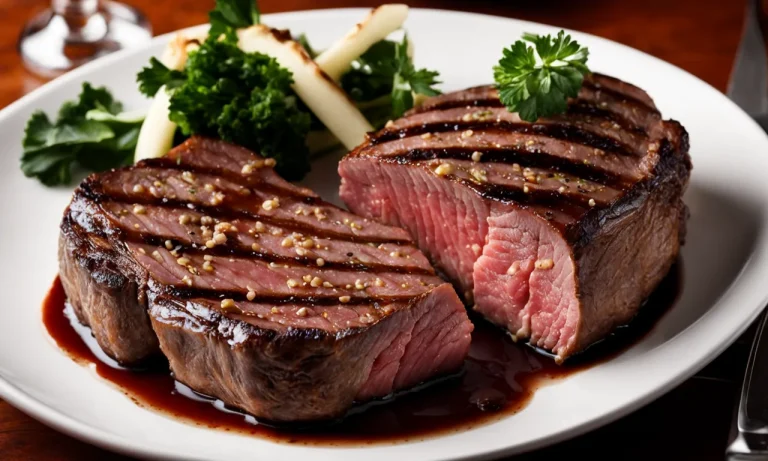The question of whether restaurant owners can legally take a portion of staff tips is a complex one without a simple answer. Tipping practices are governed by a mix of federal, state, and local laws that can vary widely across the country.
However, the general consensus is that owners taking tips may be legal in some cases but raises ethical concerns.
If you’re short on time, here’s a quick answer: restaurant owners can legally take tips in many states, but some laws restrict this practice. There are debates around the ethics of owners taking tips meant for staff.
Federal Laws on Tipping
When it comes to tipping in the United States, there are several federal laws that restaurant owners must adhere to. These laws are in place to protect both the employees who rely on tips for their income and the customers who want to show their appreciation for good service.
Let’s take a detailed look at two important federal laws related to tipping.
Fair Labor Standards Act
The Fair Labor Standards Act (FLSA) is a federal law that sets the minimum wage, overtime pay, and other labor standards. When it comes to tipping, the FLSA allows restaurant owners to pay their tipped employees a lower minimum wage, known as the “tip credit” rate, as long as certain conditions are met.
Currently, the federal minimum wage for tipped employees is $2.13 per hour, with the expectation that tips will make up the difference to reach at least the regular minimum wage of $7.25 per hour. However, if an employee’s tips do not bring them up to the regular minimum wage, the employer is required to make up the difference.
It’s important to note that some states have their own minimum wage laws for tipped employees, which may be higher than the federal minimum. In these cases, the higher state minimum wage must be paid. For example, in California, tipped employees must be paid the state minimum wage of $13 per hour, regardless of the amount of tips they receive.
IRS Reporting Requirements
In addition to the FLSA, restaurant owners must also comply with IRS reporting requirements when it comes to tips. According to the IRS, all cash tips received by employees must be reported to the employer, who in turn is responsible for reporting them to the IRS.
This includes both tips received directly from customers and tips that are pooled and distributed among employees.
The IRS requires employers to keep accurate records of all tips received and report them on Form 8027, “Employer’s Annual Information Return of Tip Income and Allocated Tips.” This form must be filed by February 28th of each year, or by March 31st if filed electronically.
It’s worth mentioning that non-cash tips, such as gift cards or tickets, are also subject to taxation and must be reported to the IRS as well.
For more information on federal tipping laws and IRS reporting requirements, you can visit the official websites of the U.S. Department of Labor and the Internal Revenue Service.
State Laws on Tip Sharing
Tip Credit/Tip Pooling
One important aspect of tipping laws that restaurant owners should be aware of is the concept of tip credit and tip pooling. Tip credit refers to the practice of employers paying tipped employees less than the regular minimum wage, with the expectation that the tips received will make up the difference.
This practice is allowed in some states, but the specific regulations vary. For example, in California, employers are not allowed to take a tip credit, meaning they must pay employees the full minimum wage in addition to any tips they receive.
On the other hand, in states like New York, employers can take a tip credit, but there are restrictions on the amount and how it can be implemented.
Tip pooling, on the other hand, involves the sharing of tips among employees. This can be a way to distribute tips more equitably among staff members, but it also has specific rules and regulations that vary by state.
Some states allow tip pooling only among employees who regularly receive tips, such as servers and bartenders, while others may allow tip pooling with employees who do not typically receive tips, such as kitchen staff.
It’s important for restaurant owners to familiarize themselves with the specific regulations in their state to ensure compliance with the law.
Tip Sharing Restrictions
While tip sharing can be beneficial for promoting teamwork and fair distribution of tips, there are also restrictions and limitations in place to protect employees’ rights. These restrictions may vary by state, but some common guidelines include:
- Prohibiting employers from requiring tip sharing
- Requiring that tips be distributed among employees who provide direct table service
- Prohibiting employers from retaining any portion of the tips for themselves
It’s important for restaurant owners to understand and comply with these restrictions to avoid potential legal issues and to ensure that their employees are being treated fairly. Violations of tip sharing laws can result in penalties, fines, and even legal action by employees.
For more information on tip sharing laws in your state, it is recommended to consult official government websites or seek legal advice from professionals familiar with employment laws. Websites like www.dol.gov and www.employmentlawhandbook.com provide comprehensive resources and guidance on tipping laws and regulations.
Local Ordinances on Tip Retention
Key Cities with Tip Ordinances
Many cities across the United States have implemented local ordinances regarding tip retention by restaurant owners. These ordinances aim to protect the rights of tipped employees and ensure that they receive their fair share of gratuities. Some of the key cities with tip ordinances include:
- New York City
- San Francisco
- Seattle
- Chicago
- Los Angeles
In New York City, for example, the “Fair Wages for New Yorkers Act” requires that restaurant owners pass on 100% of tips to their employees. This means that restaurant owners cannot keep any portion of the tips left by customers.
Similarly, in San Francisco, the “Service Charge Retention Ordinance” mandates that any service charges imposed by the restaurant must be distributed to the employees in their entirety. Restaurant owners are not allowed to retain any portion of these service charges.
It’s important for restaurant owners to familiarize themselves with these local ordinances and ensure compliance to avoid penalties and legal issues.
Penalties for Violations
Violating local tip retention ordinances can have serious consequences for restaurant owners. Penalties for non-compliance may include:
- Fines
- Revocation or suspension of business licenses
- Civil lawsuits filed by employees
- Damage to the restaurant’s reputation
For example, in New York City, restaurant owners who fail to pass on tips to their employees can be fined up to $350 for each violation. Repeat offenders may face higher fines and the potential loss of their business license.
It’s important for restaurant owners to understand the local laws and regulations governing tip retention in their area to avoid these penalties. By complying with these ordinances, restaurant owners can maintain a positive reputation, retain loyal employees, and ensure fair treatment of their staff.
Lawsuits and Controversies Over Owner Tip Taking
When it comes to the practice of restaurant owners taking a portion of their employees’ tips, there have been a number of lawsuits and controversies in recent years. These cases have shed light on the complex legal and ethical issues surrounding tip distribution in the hospitality industry.
Recent Legal Cases
In 2018, a high-profile lawsuit was filed against a well-known restaurant chain for allegedly violating federal labor laws by allowing owners to take a share of the tips. The case sparked a national conversation about the rights of restaurant workers and the responsibilities of owners.
Another significant case involved a small local restaurant that was sued by former employees who claimed that the owners were unlawfully pocketing a portion of their tips. The court ruled in favor of the employees, highlighting the importance of adhering to the Fair Labor Standards Act (FLSA) and state-specific labor laws.
These legal battles have resulted in increased scrutiny of restaurant owners’ tip-taking practices and have prompted many states to enact stricter regulations to protect the rights of tipped employees.
Ethical Debates
The issue of whether restaurant owners should be allowed to take a portion of their employees’ tips has sparked heated ethical debates. On one hand, some argue that owners have the right to share in the gratuities as they are responsible for the success of the business and bear the financial risks.
They argue that if owners are prohibited from taking tips, it may discourage them from investing in their establishments or hiring more staff.
On the other hand, opponents of owner tip-taking believe that tips are intended for the direct benefit of the service staff who provide excellent customer service. They argue that owners already receive profits from the business and taking a portion of the tips is unfair and exploitative.
Additionally, they claim that allowing owners to take tips may lead to unequal distribution, favoritism, and abuse of power.
Ultimately, the debate over owner tip-taking is a complex issue with valid arguments on both sides. It requires a careful examination of labor laws, the impact on employees, and the overall fairness within the industry.
For more information on tipping laws and regulations, you can visit the official website of the U.S. Department of Labor: www.dol.gov.
Tips for Restaurant Owners
Compliance Best Practices
When it comes to handling tips, restaurant owners must ensure they are in compliance with the applicable laws and regulations. This means understanding the legal requirements for tip pooling, tip credits, and minimum wage laws in their jurisdiction.
It is essential to stay updated on any changes to these laws to avoid potential legal issues.
One helpful resource for staying compliant is the U.S. Department of Labor’s website. They provide detailed information on federal labor laws and regulations, including those related to tipping. Their website can be found at https://www.dol.gov/.
It’s also a good idea to consult with a labor law attorney who specializes in the restaurant industry to get expert advice and guidance.
Staff Communication
Clear and open communication with your staff is crucial for effectively managing tips in a restaurant. Ensure that your employees are aware of the tipping policies and guidelines in place. Provide training on how to handle tips, including proper reporting procedures and the importance of accurate record-keeping.
Regular meetings or memos can be used to address any questions or concerns your employees may have regarding tips. By fostering an environment of transparency and open communication, you can minimize confusion and potential disputes related to tips.
Additionally, consider implementing a system for tracking and distributing tips. This can help streamline the process and ensure that tips are fairly allocated among your staff. There are various software solutions available that can assist with tip tracking and distribution, making it easier for both management and employees.
Conclusion
In summary, federal, state, and local laws create a complex legal landscape around whether restaurant owners can take a portion of staff tips. While legal in some cases, the practice raises ethical issues around staff relations and fairness.
Restaurant owners should educate themselves on applicable laws, implement tip pooling legally and ethically, and communicate clearly with staff.






